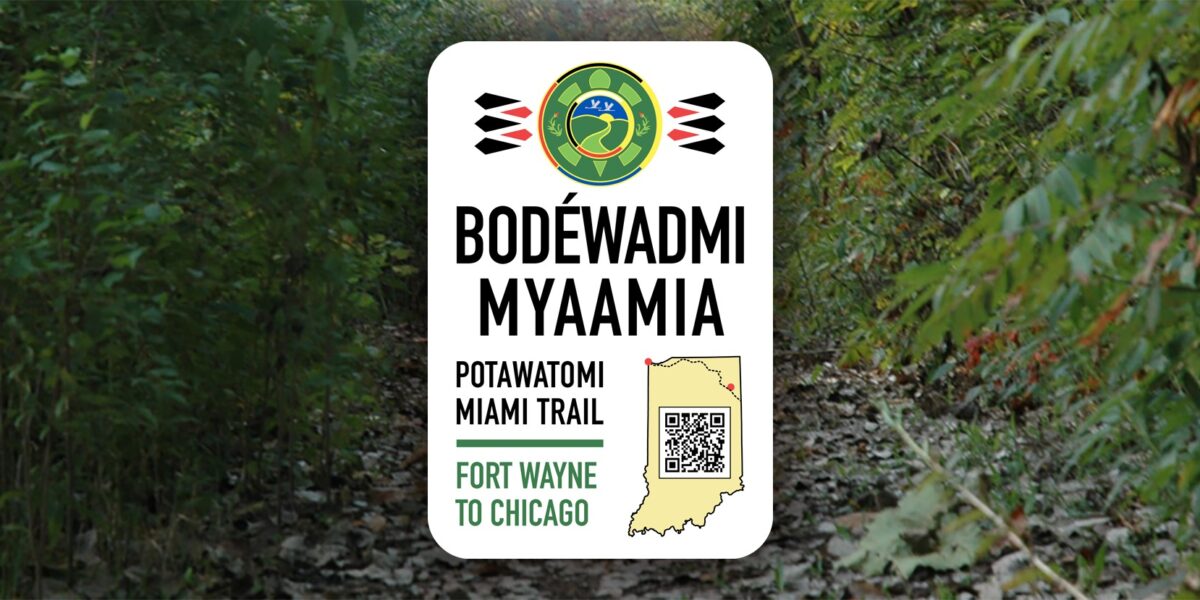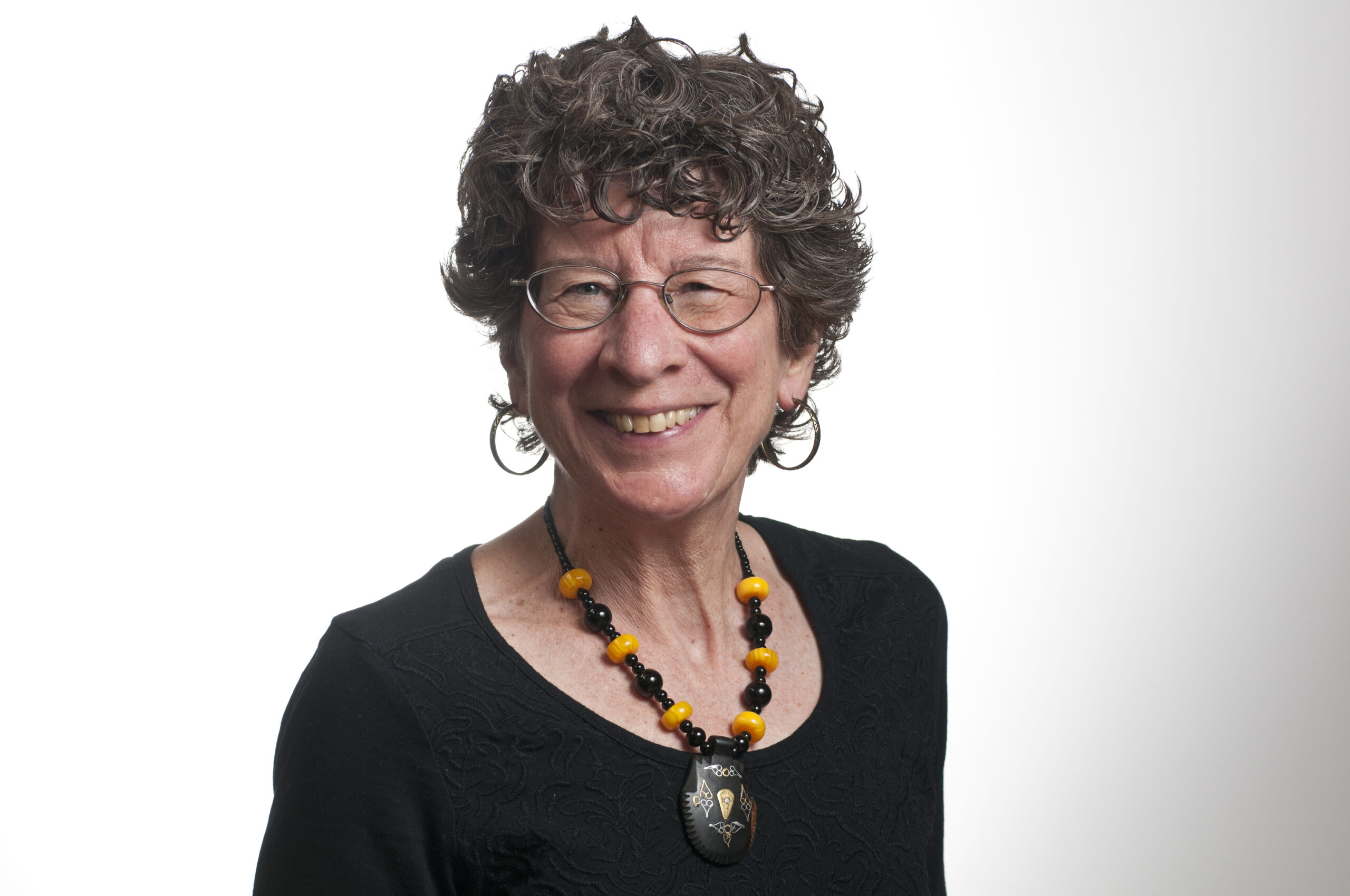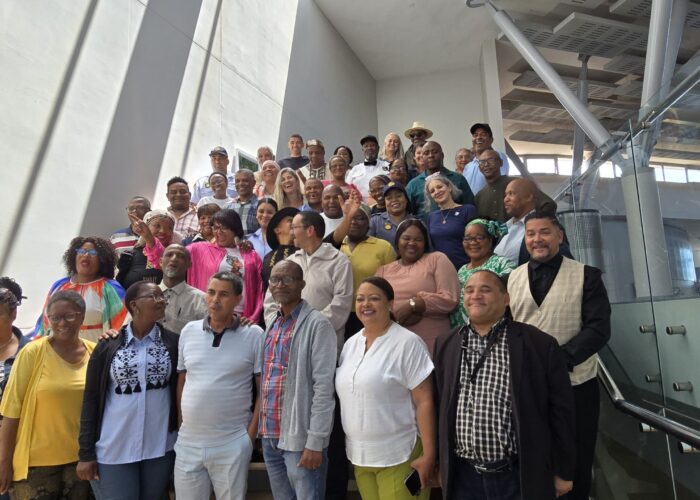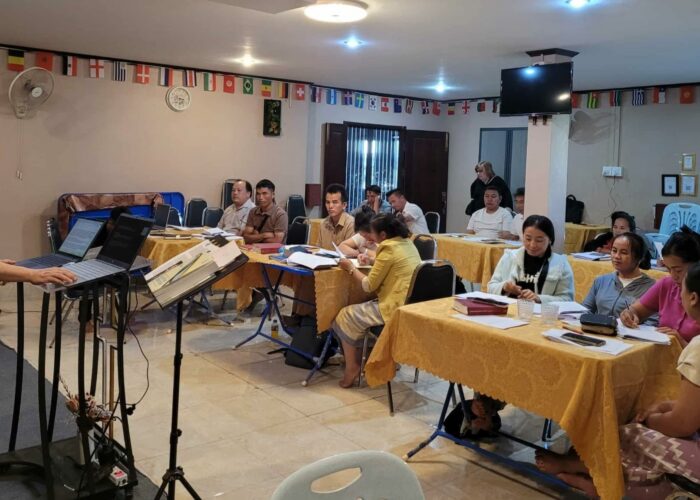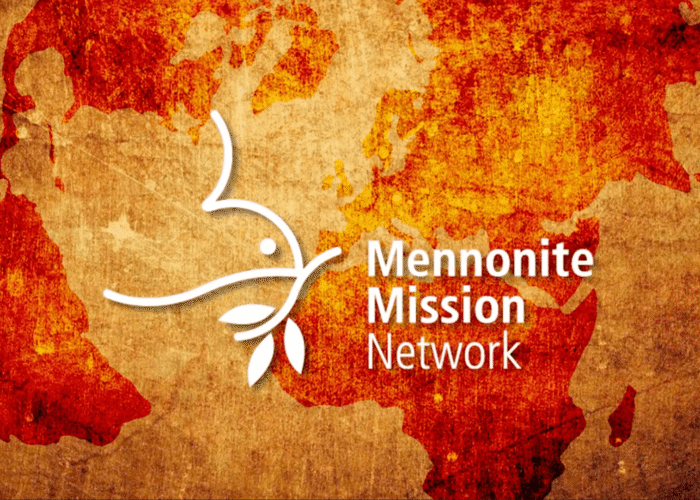Elkhart, Ind. — The
Potawatomi and Miami Trail Marker Group — in partnership with
Anabaptist Mennonite Biblical Seminary (AMBS),
Mennonite Central Committee Great Lakes (MCC Great Lakes) and
Mennonite Mission Network — will unveil the first memorial signage of the
Bodewadmi-Myaamia (Potawatomi-Miami) Trail at AMBS on Friday, September 29, 10:20 – 10:40 a.m. There will be one main trail sign and three signs for the spur to the St. Joseph River unveiled on the AMBS property. The event is free and open to the public.
The 20-minute ceremony will include a description of the trail and the unveiling of signs.
“It is with great joy that MCC Great Lakes celebrates the first memorial signage of the Bodewadmi-Myaamia Trail,” said Juan Pacheco Lozano, MCC Great Lakes Peace & Justice Coordinator and a member of the Trail Marker Group. “We are grateful to be part of this initiative seeking to repair historic harm and recognize those present in the land before us. We hope this project raises awareness in the community about Indigenous Peoples who are still our neighbors.”
The September 29 posting of the
Bodewadmi-Myaamia Trail signs is part of an initial focus to mark the trail in Elkhart County, Indiana. A longer-term goal is to mark the route across northern Indiana, as it passes through private properties and county land. In some areas, roads are paved on the original trail, as is the case for portions of U.S. 33.
The 145-mile trail holds profound importance as a route traversed by the
Bodewadmi and Myaamia Peoples, two of the original Indigenous communities who have lived in the Great Lakes Region for thousands of years. This trail was a lifeline that facilitated trade, cultural exchange and connections between communities.
Dr. Luke Gascho, executive director emeritus of
Merry Lea Environmental Learning Center at
Goshen College, became interested in the extensive trail systems of the Indigenous Peoples of the region as he researched the history of the land he lives on, he studied an 1830 survey, he observed a major Indigenous trade route that traversed the Maumee River Watershed (Fort Wayne area) to Lake Michigan (Chicago area) and connected to other major Indigenous trails in the region.

The main portion of this map is Section 22 of Elkhart Township. The Elkhart River is on the left side of the overlay. The blue line highlights the trail. Map courtesy of Google. Overlay courtesy of Luke Gascho.
Inspired by Gascho’s presentations throughout the Goshen community about this trail, volunteers began to offer their services to document the Indigenous transportation artery and its spurs as one way to memorialize the Indigenous Peoples. Nine of these volunteers founded the Potawatomi and Miami Trail Marker Group, which works to raise awareness of the history of violent removal of Indigenous Peoples from their ancestral lands as settlers moved westward. The Trail Marker Group also wants to acknowledge the Indigenous Peoples who still live in the area.
“For too long the Indigenous Peoples of this region – and their history – have been ignored,” said Gascho. “Marking this Indigenous route through the landscape of northern Indiana is a way of honoring the Potawatomi and Miami people.”
He said the trail markers and informational displays will aid in raising awareness among people who see the signage and he hopes to see actions of reparative justice emerge with the Indigenous Peoples who lived on and loved this land for hundreds of generations.
The Potawatomi and Miami Trail Marker Group consulted with numerous representatives of these Tribes who also collaborated on the name of the trail:
Diane Hunter, Tribal Historic Preservation Officer for
Miami Tribe of OklahomaDr. Kelli Mosteller, Executive Director of the
Harvard University Native American Program and former Director of the Citizen Potawatomi Nation Cultural Heritage CenterMatthew Bussler, Tribal Historic Preservation Officer for the
Pokagon Band of PotawatomiNicole Holloway, Director of the History and Culture Center for the
Pokagon Band of PotawatomiR. Blake Norton, Curator of the
Citizen Potawatomi Nation Cultural Heritage Center
This signage event is part of the
Rooted and Grounded Conference on Land and Christian Discipleship being held at AMBS September 28 – 30. Kaitlin Curtice, a Potawatomi author and speaker whose ancestors lived in this region, is one of the keynote speakers for the conference.
A pre-conference
immersion experience — "Potawatomi-Miami Trail in Elkhart County" — will take place on Thursday, September 28, from 1 to 5 p.m., led by Gascho. There is a cost to participate in the immersion experience and the conference and registration is required by September 20.
To attend the event, use the drive for the MC USA offices (3145 Benham Ave, Elkhart, IN 46517) and park in the AMBS south parking lot near the Chapel of the Sermon on the Mount. Please arrive by 10:15 a.m. The dedication starts next to the solar panels.
For more information, contact
Janeen Bertsche Johnson, AMBS Director of Campus Ministries, 574-296-6216 or
jbjohnson@ambs.edu

